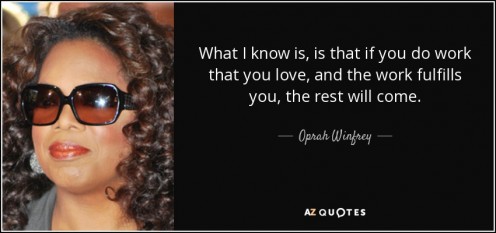Is your Partner the Workaholic
Is your Partner the Workaholic?
Is your partner a workaholic in your marriage?
What happens in a marriage when a partner is a workaholic?
A workaholic becomes bored when at home and it is easy to notice such behaviours.
The individual doesn't know how to spend time at home without thinking of work. You marry someone thinking everything is perfect and will be that way.
Is your Partner a Workaholic?
In most marriages, you think you know your partner. Unfortunately, that isn't the case in many marriages.
How do you know if your partner is a workaholic?
The similar signs of having an affair or being a workaholic do confuse one's mind when it comes to your close relationship with your partner. You aren't sure what to think when your partner tells you they are working late every day of the week.
During family time or your time together with your partner, a workaholic fails to relax and pay attention to their needs.
The sign of selfishness is proven to you by your workaholic partner.
Your partner works hours to become successful. Everything else in the marriage begins to fade and you wonder why you got yourself in that position.
The broken promises and late nights make you feel alone, sad, and of no worth to your partner.
At times you feel depressed in the emptiness of your marriage. It makes you feel like nothing at home alone day after day.
No matter how much you try to speak to your partner about what is going on in your marriage, nothing makes your communication any simpler.
Workaholics don't know how to relax on any given day, and lose the proper understanding of their partner’s needs, and wants in their marriage. When married to a workaholic you feel resentment and jealousy.
The long working hours allow your partner to feel tired and to fall asleep when they are seated.
Regardless of where they are, their mind is focused on work. Such behaviour destroys a marriage and leaves your significant other feeling desperate and looking the other way.
The following when partners are complaining of their failing marriages:
''You have no time for me.''
''I don't get your attention.''
''There's no communication and you aren't there for me.''
''You don't talk anymore like we used to.''
''You are at work most of the time.''
''We have become strangers.''
The lack of attention puts you in a different place in your marriage. There Are issues in marriages, but that doesn't mean you must blame yourself for your partner's actions.
Of course, you feel neglected when you spend the least amount of time with your partner.
You feel something is missing in you, and you aren't discussing the problem. You aren't the cause of your partner's addictions is your first thought.
Be it gambling, cheating or shopping addictions, no one is part of this behaviour except for those in it. In most cases, partners look for someone else to share their emotions with, and that can lead to revenge, for example; cheating,
There's betrayal in a marriage it hurts to face up to such problems alone. Betrayal becomes an issue if both partners neglect each other's needs. The problems aren't solved in a day. You work through the issues together and pass them together. It is not fair for a partner to do this alone.
All work and no play make life dull. Find pleasure in each moment you have together alone. Hold hands and make your partner see you are happy and still in love.
You want fun and interesting events in your marriage, and it takes two to make that happen.
Certain aspects can be treated without the presence of anger. Express how you feel, and you will feel better afterwards.
At times getting a word to your partner can be most difficult. As much as you want to point out their flaws you aren't allowed to do that, instead, you must accept it.
To love someone is to accept their flaws. The aspects of your marriage are important. Keep the practice and you know the meaning of your lives together.
It is easy to break down in a marriage, workaholics spend time working while their partners ignore them. When a partner feels a competitor in their marriage one can become dissatisfied with this marriage.
This allows for fights and that creates a distance between the couple. The quality of your relationship proves your weaknesses and negative arguments with one another. Two people create a bond when they say their vows.
The true actions of being together no matter what the obstacle is a greater challenge.
For some, it is an addiction and ruins marriages over time. That makes partners unhappy, depressed, lonely, sick and tired of that routine you created, or the wedge you created.
Workaholics don't see their problem and don't see how their behaviour is hurting their partners.
Husband and wife go their separate ways by losing a connection, though they had love, it doesn't save the marriage.
It is time you factually approached the problem. The more time your partner spends at home; the more desperate one becomes to seek the attention of others.
The problem becomes a bigger one when the partner thinks an affair is going on at the workplace. These issues lie in one's mind due to long working hours.
As much as you trust your partner, and when you see your partner all sorts of thoughts go through your mind. Working for more than forty hours a week and working seven days a week can ruin any relationship.
No energy for you and you lose interest and the attention you need from them. You feel resentment and unhappiness in your marriage. As any other behaviour is, anything you do much of can ruin your health and relationships.
Partners who choose to live that way move from their partners and feel disconnected.
Work is your top priority, and nothing else noticed at home, shows you are a workaholic.
When you are at home you want to contact work and it isn't fair to your partner. Hard-working individuals have a balanced lifestyle, whereas the workaholic has nothing of that. One needs to draw the line to show when it is time for home and work.
Is your Partner the Workaholic?


Workaholic problems in marriages
How would you cope with a Workaholic in your marriage?
Workaholic issue
“It is not as much about who you used to be, as it is about who you choose to be.”
― Sanhita Baruah
This content is accurate and true to the best of the author’s knowledge and is not meant to substitute for formal and individualized advice from a qualified professional.
© 2018 Devika Primić








